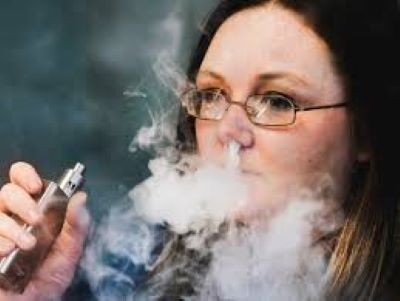A coalition of public health advocates has bemoaned the Federal Competition and Consumer Protection Commission (FCCPC) for failing to curb the rising sale and marketing of e-cigarettes and flavoured vapes to minors.
The coalition comprising over 300 Nigerian parents and health advocates made the call in a petition to the Federal Government and signed on Tuesday in Abuja as part of the World No Tobacco Day 2025 Campaign.
The group highlighted what they called a “public health crisis”, the rising popularity of fruit-flavoured nicotine products among Nigerian children, some as young as 10.
Speaking to newsmen, the President of the Federation of Muslim Women’s Association of Nigeria (FOWMAN), Kwara chapter, Mrs Nimat Labaika warned that tobacco companies were aggressively targeting children to maintain profits.
“For us not to lose our future leaders, we have to collectively lend our voices,” she said.
Labaika called on the FCCPC to immediately issue guidelines restricting the sale of these products to minors, warning that the agency could face public sanctions for perceived inaction.
“Research cited at the event indicates that five million Nigerian youths are already addicted to smoking, with 25,000 new youth smokers emerging daily,” she said.
A mother of two boys, Mrs Uju Nwoka said: “I believe that the FCCPC should be sanctioned to do their jobs to protect our children and enforce regulations against tobacco companies.”
Mr Kenneth Kenas Anetor, Voices for Tobacco Control, said that the campaign highlighted the absence of comprehensive legislation regulating the marketing, sale, and access to vapes and other flavoured tobacco products in Nigeria.
Anetor also referenced an investigation revealing how easily underage Nigerians were able to purchase tobacco products, in spite of the laws that restricted sales to individuals 18 and younger.
He urged Nigerians to also take a moment to sign the online petition titled “Keep Vapes Away from Nigerian Kids,” as it continued to gain traction.
The World No Tobacco Day 2025, themed “Unmasking the Appeal,” highlights how the tobacco and nicotine industries target youth using attractive product designs, flavours, and marketing tactics that mask the dangers of addiction.
Despite six million adolescents using tobacco in the Western Pacific Region in 2022, few countries have comprehensive bans on advertising or flavour use.
However, momentum for reform is growing, with more nations adopting plain packaging and banning e-cigarettes.
The World Health Organisation (WHO) urges governments to take stronger action, ban flavours, regulate packaging and design, restrict advertising, support quitting, and raise taxes, to protect future generations from nicotine addiction and its health and financial toll.
NAN



